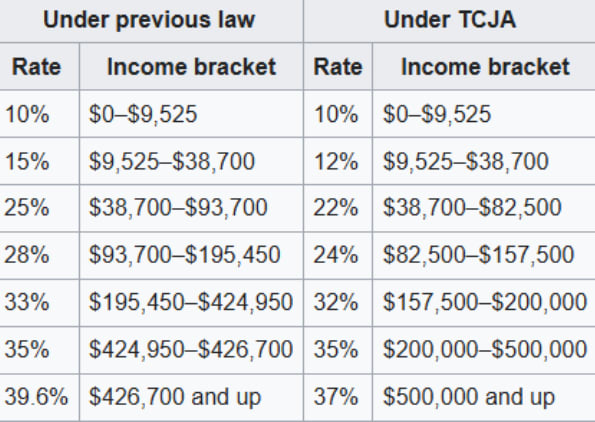Introduction
Looking back on the (not very) distant past, a truth starts to show itself. Gone are the days of just pens and papers, but computers and artificial intelligence have found their place in the school system. However, the nuances of that truth may change depending on the person. Some people believe that it’s a great tool for students, and others point at generative AI as the singular villain to the current education system. While it’s understandable where those negative views come from, there’s no escaping its presence. However, there are absolutely ways to use it responsibly.
AI in Studying
There are many ways to use generative AI in order to gain greater understanding of concepts and content. For example, it is a pretty effective tool for giving explanations. Asking AI questions is very useful as there is no time pressure to understand things. When using it in this way, the AI can serve as an enhanced search engine, helping you find and understand information more clearly. Through systems such as ChatGPT, you can customize the way concepts are clarified to you. Additionally, it also typically understands what you are asking than standard Google searches. To add on, AI can usually help save time rereading through giving summaries of articles, and most informational websites have AI built in for that purpose.
Another useful tip is using AI to make practice tests for you. Asking ChatGPT to make practice tests for a variety of subjects is something that I, in particular, do a lot, as it can be very helpful to work on aptitude. AI can easily create and grade a series of practice tests, and adapt them to questions you often make mistakes in. Speaking from experience, a large percentage of my ChatGPT usage is through this one purpose, and it helped me greatly when studying for tests in subjects I’m less confident with.
Revisions with AI
While its assistance with academic comprehension is great, the way that AI can assist with revisions and the writing process is very useful too. While asking AI to create essays for students does no favors, and in fact, only stimulates academic dishonesty, AI-given advice can be very useful for students to create and revise their own pieces. In the brainstorming process, it can be very helpful to ask an AI to critique or help expand on your ideas.
AI is also very useful in the revision stage, as it can read our writing pieces very quickly and offer near-immediate feedback. It can point out specific segments of your piece that could be made stronger, more clear, or simply ones that could be expanded upon. While this is no replacement for an actual writing coach, tools like ChatGPT or Khanmigo can be critical in enhancing a student’s writing skills without forcing them to rely on these tools. Khanmigo in particular is very useful for the writing process. This is because it can give specific feedback on how to improve without necessarily rewriting the piece, encouraging authentic thinking and ideas.
What to Consider While Using AI
Whether you use it to study for tests or to revise your work, there are many things to keep in mind during the process of using artificial intelligence. Firstly, and perhaps the most importantly, anybody who wishes to use AI should be fact-checking the information it churns out. While it is certainly easy to just soak up the information that you get from chatbots, there is always a possibility that the information you were just provided is simply false, due to misinformation, outdated information, or bad processing of training data. Especially with AI, it's crucial to fact-check what exactly it is telling you.
Additionally, it’s necessary to draw the line between what AI should do and what you should be doing. Artificial intelligence is a tool, and should be used to assist someone’s creation process, not do it for them. While I mention its ability to help in the writing process, using AI to write anything completely for you is academically dishonest, and should never be done. Any assignment or project that involves the creation and refinement of anything should be done manually, with any AI-driven involvement coming in the form of advice, as opposed to automation.
Conclusion
Despite the growing concern for AI usage in the education system today, there exists responsible ways to use artificial intelligence in order to enhance the learning process as a student. As a student myself, I have exercised the methods I have mentioned above in order to help myself understand concepts and study for exams. You can definitely utilize AI to your educational advantage without being academically dishonest, as artificial intelligence is a tool. While that is definitely true, I stand by the teacher-stemmed concerns that come with students using this ‘omnipresent’ tool, notably students suffering in aptitude from overreliance on AI. Like any tool, there are responsible and irresponsible ways to use AI in your studies. If you could take one thing away from this article, it should be that responsible AI use goes above all other things I mentioned. In the school setting, AI is no more than an assistive tool, and should be treated as such. If you use it correctly, it can be great at giving educational assistance, while overreliance will only lead to greater long-term issues. To conclude, as long as it does not grow into an excuse for laziness, there are certainly ways to use AI responsibly and for your academic benefit.
Works Cited
“AI in Education: Student Usage in Online Learning.” Michigan Virtual, 2 Oct. 2024, michiganvirtual.org/research/publications/ai-in-education-student-usage-in-online-learning/. Accessed 03 Mar. 2025.
“Classroom Strategies to Promote Responsible Use of A.I.” The Center for Teaching and Learning, 14 Feb. 2024, teaching.charlotte.edu/teaching-support/teaching-guides/general-principles-teaching-age-ai/. Accessed 03 Mar. 2025.
“Ethical AI Use for Students.” Truth For Teachers, 9 Dec. 2024, truthforteachers.com/teach-students-how-to-use-artificial-intelligence-responsibly/. Accessed 03 Mar. 2025.
“How to Use AI Ethically as a Student.” RSS, www.straighterline.com/blog/how-to-use-ai-ethically-as-a-student. Accessed 03 Mar. 2025.
“Meet Khanmigo: Khan Academy’s AI-Powered Teaching Assistant & Tutor.” Meet Khanmigo: Khan Academy’s AI-Powered Teaching Assistant & Tutor, 28 Feb. 2025, www.khanmigo.ai/. Accessed 03 Mar. 2025.
“Using Generative AI to Support Your Learning as a Student.” University of Chicago, genai.uchicago.edu/en/resources/students/generative-ai-student-guide. Accessed 03 Mar. 2025.
“Why You Need to Fact-Check AI-Generated Content.” Community, www.lexisnexis.com/community/insights/professional/b/industry-insights/posts/misinformation-in-artificial-intelligence-?srsltid=AfmBOoqiEG8ZibUhAhEVi0fGjoaiXa3v6C_-3inAj6d8SebjZxG3b6am. Accessed 03 Mar. 2025.









